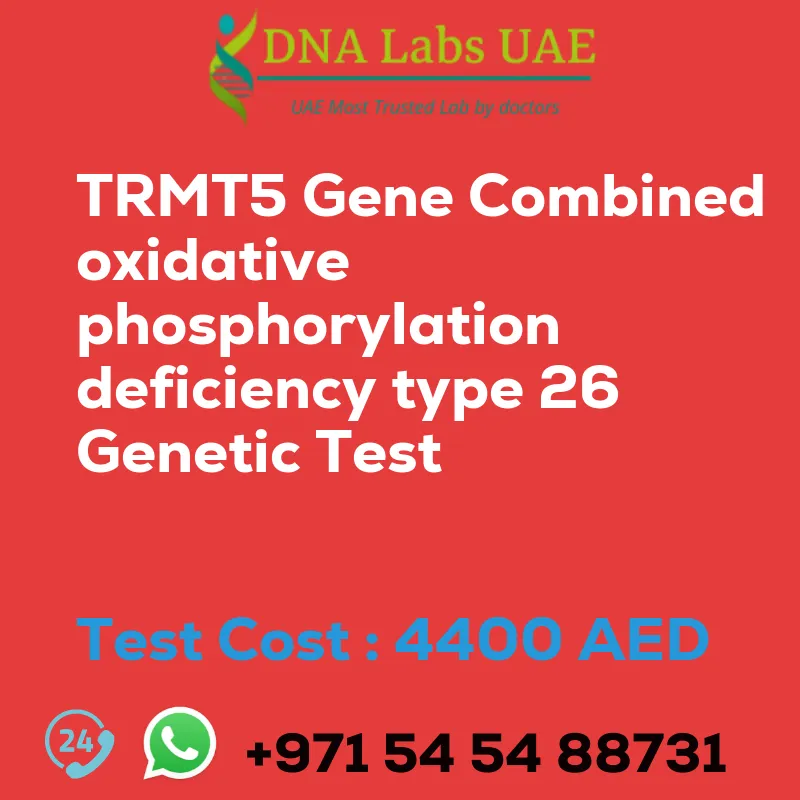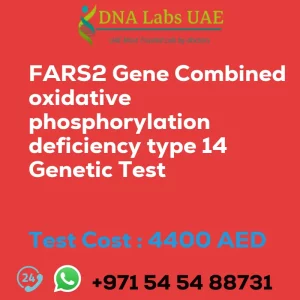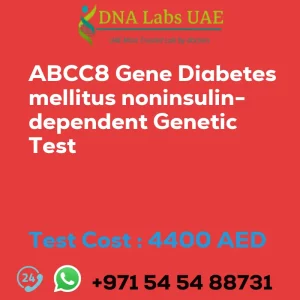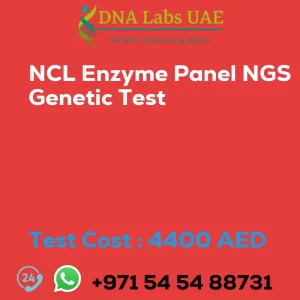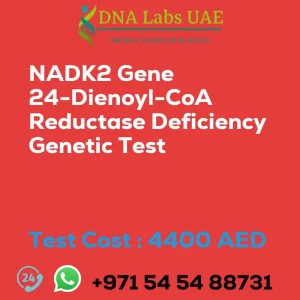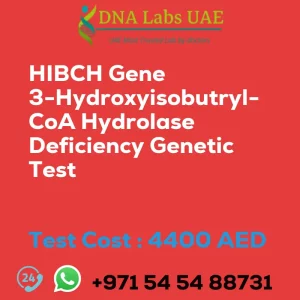TRMT5 Gene Combined Oxidative Phosphorylation Deficiency Type 26 Genetic Test
Test Details:
The TRMT5 gene is responsible for encoding the tRNA (transfer RNA) methyltransferase 5 enzyme, which plays a role in modifying certain tRNAs in the mitochondria. Combined oxidative phosphorylation deficiency type 26 (COXPD26) is a rare genetic disorder characterized by a deficiency in oxidative phosphorylation, which is the process by which cells produce energy in the form of ATP.
NGS (Next-Generation Sequencing) genetic testing is a technique used to analyze multiple genes simultaneously to identify genetic variations or mutations that may be associated with a particular disorder. In the case of COXPD26, NGS genetic testing can be used to identify mutations or variations in the TRMT5 gene that may be causing the deficiency in oxidative phosphorylation.
Test Components and Price:
| Test Name | Components | Price |
|---|---|---|
| TRMT5 Gene Combined Oxidative Phosphorylation Deficiency Type 26 Genetic Test | NGS Technology | 4400.0 AED |
Sample Condition:
Blood or Extracted DNA or One drop Blood on FTA Card
Report Delivery:
3 to 4 Weeks
Test Type:
Metabolic Disorders
Doctor:
General Physician
Test Department:
Genetics
Pre Test Information:
Clinical History of Patient who is going for TRMT5 Gene Combined Oxidative Phosphorylation Deficiency Type 26 NGS Genetic DNA Test. A Genetic Counselling session to draw a pedigree chart of family members affected with Combined Oxidative Phosphorylation Deficiency Type 26.
Test Process:
- Obtain a DNA sample, typically through a blood or saliva sample, from the individual being tested.
- Sequence the DNA using NGS technology to identify any variations or mutations in the TRMT5 gene.
- Analyze the results to diagnose COXPD26 and provide information about the specific genetic variant causing the condition.
Benefits of Genetic Testing:
- Confirm a suspected diagnosis
- Provide information about disease progression and prognosis
- Inform treatment decisions
It is important to note that genetic testing may not always provide a definitive diagnosis or treatment options, as the relationship between genetic variants and disease can be complex. Genetic counseling is often recommended before and after genetic testing to help individuals understand the implications of the test results and make informed decisions.
| Test Name | TRMT5 Gene Combined oxidative phosphorylation deficiency type 26 Genetic Test |
|---|---|
| Components | |
| Price | 4400.0 AED |
| Sample Condition | Blood or Extracted DNA or One drop Blood on FTA Card |
| Report Delivery | 3 to 4 Weeks |
| Method | NGS Technology |
| Test type | Metabolic Disorders |
| Doctor | General Physician |
| Test Department: | Genetics |
| Pre Test Information | Clinical History of Patient who is going for TRMT5 Gene Combined oxidative phosphorylation deficiency type 26 NGS Genetic DNA Test A Genetic Counselling session to draw a pedigree chart of family members affected with Combined oxidative phosphorylation deficiency type 26 |
| Test Details |
The TRMT5 gene is responsible for encoding the tRNA (transfer RNA) methyltransferase 5 enzyme, which plays a role in modifying certain tRNAs in the mitochondria. Combined oxidative phosphorylation deficiency type 26 (COXPD26) is a rare genetic disorder characterized by a deficiency in oxidative phosphorylation, which is the process by which cells produce energy in the form of ATP. NGS (Next-Generation Sequencing) genetic testing is a technique used to analyze multiple genes simultaneously to identify genetic variations or mutations that may be associated with a particular disorder. In the case of COXPD26, NGS genetic testing can be used to identify mutations or variations in the TRMT5 gene that may be causing the deficiency in oxidative phosphorylation. The NGS genetic test for COXPD26 would involve obtaining a DNA sample, typically through a blood or saliva sample, from the individual being tested. The DNA would then be sequenced using NGS technology to identify any variations or mutations in the TRMT5 gene. These results can help diagnose COXPD26 and provide information about the specific genetic variant causing the condition. Genetic testing can be useful in confirming a suspected diagnosis, providing information about disease progression and prognosis, and informing treatment decisions. However, it is important to note that genetic testing may not always provide a definitive diagnosis or treatment options, as the relationship between genetic variants and disease can be complex. Genetic counseling is often recommended before and after genetic testing to help individuals understand the implications of the test results and make informed decisions. |

